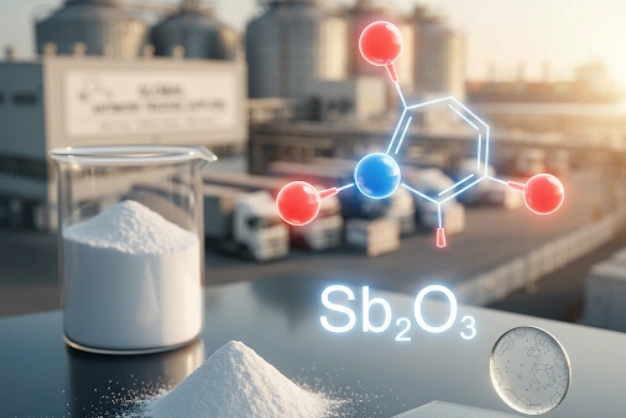Silicone oil is a type of synthetic polymer derived from silicon, oxygen, carbon, and hydrogen. It is primarily composed of linear polysiloxane chains, which give it its unique properties. The primary form of silicone oil is polydimethylsiloxane (PDMS), but other variations exist depending on the specific application requirements.
Low-viscosity silicone oils are fluid and easily spreadable. These oils are commonly used in personal care products like hair serums and skin lotions due to their ability to provide a smooth, non-greasy feel. They are also used as base fluids in various industrial applications requiring minimal resistance and high thermal stability.
Specialty silicone oils are formulated for specific applications:
Amino-Modified Silicone Oils: Improved adhesion and compatibility with organic materials, used in textile finishing and hair care products.
Fluorosilicone Oils: Excellent chemical resistance and stability, used in aerospace and automotive applications.
Silicone Polyether Copolymers: Enhanced water solubility and surface activity, used as emulsifiers and foam control agents.
Medical-grade silicone oils are highly purified and meet stringent regulatory standards for use in medical applications. They are used in ophthalmic procedures, such as retinal detachment surgeries, and in the formulation of medical devices and implants due to their biocompatibility and inert nature.
High-temperature silicone oils maintain stability and lubrication properties at temperatures exceeding 200°C. They are used in high-temperature bearings, heat transfer systems, and other applications where conventional oils would degrade or evaporate.
Low-temperature silicone oils remain fluid and functional at extremely low temperatures, often down to -50°C or lower. They are used in cold storage facilities, cryogenic applications, and environments where equipment must operate reliably in freezing conditions. Their low pour point and stable viscosity make them ideal for such uses.
These silicone oils have excellent dielectric properties, making them suitable for use as electrical insulators. They are used in transformers, capacitors, and other electrical components where insulation and thermal stability are critical. Their ability to dissipate heat and resist electrical breakdown enhances the performance and longevity of electrical equipment.
Cosmetic-grade silicone oils are specially processed to meet the purity and safety standards required for personal care products. They provide a smooth, non-greasy feel and are used in a wide range of cosmetics, including foundations, primers, and moisturizers. These oils enhance the spreadability and application of cosmetic products while providing a silky, luxurious texture.
Silicone oil’s molecular structure consists of repeating units of siloxane (Si-O-Si) bonds, interspersed with organic side groups. This structure imparts flexibility, thermal stability, and resistance to oxidation and chemicals.
Silicone oil’s viscosity can range from very low to extremely high, making it suitable for various applications. Its density typically ranges between 0.965 to 0.970 g/cm³, contributing to its stability and performance in different environments.
Silicone oil is hydrophobic, meaning it repels water. This property is beneficial in applications where moisture resistance is crucial, such as in electrical insulation and personal care products.
The primary raw materials for silicone oil production include silicon, methyl chloride, and water. These materials undergo several chemical reactions to form the final product.
Hydrolysis and Condensation: Methyl chloride reacts with silicon to form chlorosilanes, which are then hydrolyzed and condensed to produce siloxane polymers.
Polymerization: The siloxane polymers undergo polymerization to achieve the desired molecular weight and viscosity.
Purification: The polymerized silicone oil is purified to remove impurities and ensure high quality.
Quality control measures are crucial in silicone oil production to ensure consistency and performance. These measures include rigorous testing for viscosity, thermal stability, and purity.
Sealants: In construction and manufacturing, silicone oil is a key component in sealants. Its flexibility and adhesion properties make it ideal for sealing joints and preventing leaks.
Release Agents: Silicone oil is used as a release agent in molding processes, ensuring that materials do not stick to molds and can be easily removed.
Anti-Foaming Agents: Silicone oil is also used as an anti-foaming agent in automotive fluids, preventing foam formation that can impair the performance of lubricants and coolants.
Hair Care Products: Silicone oil is a common ingredient in hair care products due to its ability to smooth hair, reduce frizz, and add shine without making the hair greasy.
Skin Creams: In skin creams, silicone oil acts as an emollient, creating a protective barrier on the skin that locks in moisture and enhances the product’s spreadability.
Pharmaceutical Formulations: In the pharmaceutical industry, silicone oil is used in various formulations to enhance the delivery and stability of active ingredients.
Medical Devices: Silicone oil is used in medical devices, particularly in ophthalmic procedures, where it helps to stabilize the retina during surgeries.
Silicone oil’s ability to maintain its properties across a wide temperature range makes it ideal for high-temperature applications.
The low volatility of silicone oil ensures it remains effective over time without significant evaporation, making it reliable in long-term applications.
Silicone oil is non-toxic and chemically inert, making it safe for use in personal care products, pharmaceuticals, and medical devices.
The versatility of silicone oil allows it to be used in a wide range of applications, from industrial lubricants to cosmetic ingredients.
Silicone oil should be stored in a cool, dry place away from direct sunlight and sources of ignition. Ensure containers are tightly sealed to prevent contamination.
Follow standard handling guidelines, including using appropriate tools and equipment, to avoid spills and accidents.
Dispose of silicone oil according to local regulations. Do not pour it down the drain or dispose of it in regular trash. Use designated disposal facilities for hazardous materials.
Silicone oil is not easily biodegradable, which can pose environmental concerns. However, its stability means it does not break down into harmful byproducts.
Eco-friendly alternatives to silicone oil are being developed to reduce environmental impact. These alternatives aim to provide similar benefits while being more biodegradable.
Various regulations govern the use and disposal of silicone oil to minimize its environmental impact. Compliance with these regulations is essential for responsible use.
Silicone oil has several advantages over other lubricants, such as high thermal stability and low volatility. However, it may not be suitable for all applications due to its hydrophobic properties and cost.
Silicone oil is preferred in scenarios where extreme temperatures and chemical resistance are required. In contrast, other lubricants may be more suitable for applications where biodegradability is a priority.
When choosing silicone oil, consider factors such as viscosity, application, and specific requirements of your project. High-viscosity silicone oil is ideal for heavy-duty industrial applications, while low-viscosity options are better for personal care products.
Silicone oil is a versatile and valuable component in various industries due to its unique properties and wide range of applications. Understanding its chemical properties, manufacturing process, and benefits can help you make informed decisions about its use. As the industry evolves, future trends and innovations in silicone oil will continue to enhance its applications and benefits.



